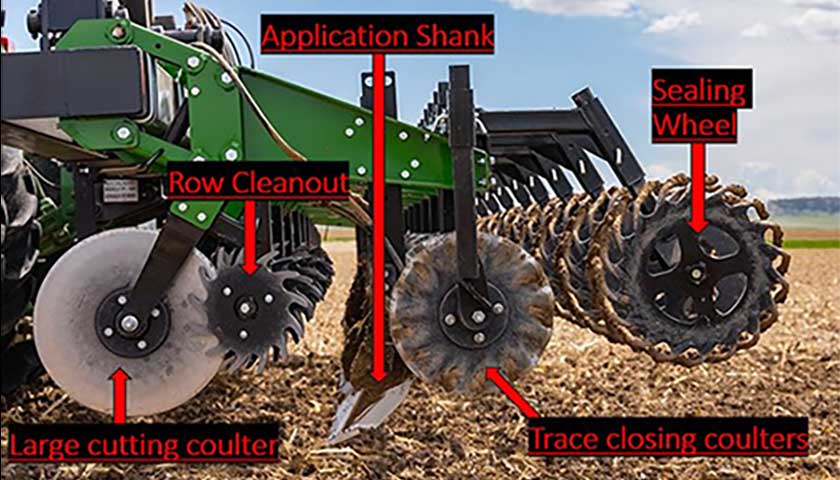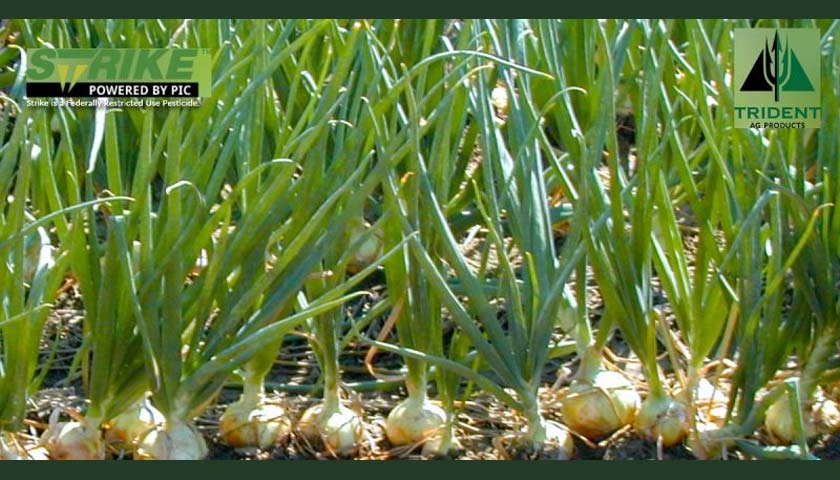Soil Health
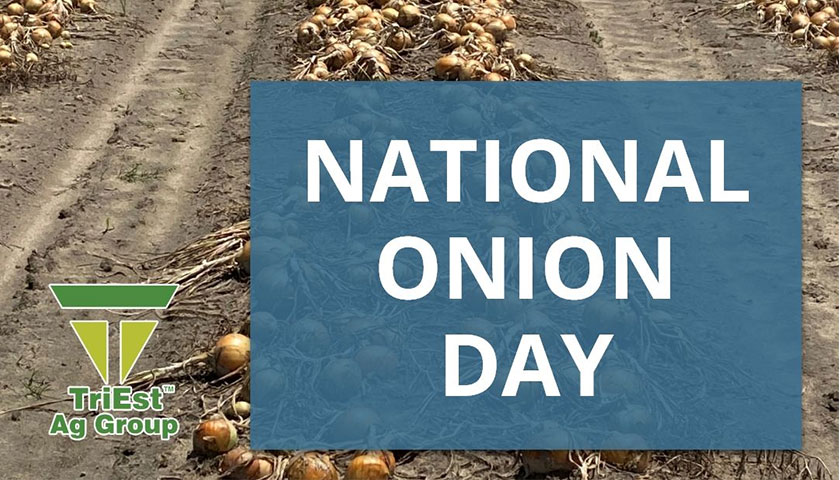
On this National Onion Day, Triest Ag recognizes the growers who work tirelessly to produce one of the world’s most essential crops. Your expertise and dedication are the foundation of a strong, sustainable onion industry. Triest is proud to support onion producers with sustainable soil health solutions for stronger crops and improved yields.


Sustainable Soil Health Solutions for Stronger Onion Crops
On this National Onion Day, Triest Ag recognizes the growers who work tirelessly to produce one of the world’s most essential crops. Your expertise and dedication are the foundation of a strong, sustainable onion industry. Triest is proud to support onion producers with sustainable soil health solutions for stronger crops and improved yields.

One Easy Change Can Double Soil’s “Good Guys”
We’ve always known Strike works. Season after season, growers tell us what they see in their fields: healthier plants, better root systems, and stronger yields. What’s happening beneath the surface? Not just in terms of pest control, but in the living biology of the soil itself?

Preparing the Soil for Future Apple Trees
This week, our team has been diligently conducting both broadcast and tarped soil fumigations utilizing Pic-Plus. These treatments are being implemented in preparation for upcoming apple planting, specifically aimed at managing soil-borne pests linked to apple replant disease.
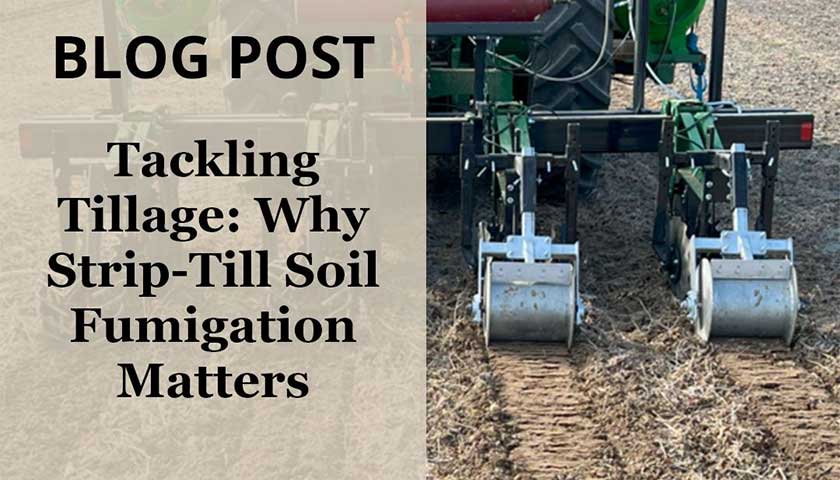
Tackling Tillage: Why Strip-Till Soil Fumigation Matters
TriEst Ag Group’s latest blog post by Agronomist Josh Mays explores a key question facing growers today: Can you reduce tillage without sacrificing the effectiveness of fumigation? After three years of field collaboration and equipment development TriEst Ag Group has answers. R

Trident Ag Optimizing Soil Conditions for a Fruitful Season.
Preparing your soil adequately before planting is key to establishing a robust foundation for healthy, resilient plants and ensuring consistent yields each year. Trident Ag recognizes the significance of optimizing soil conditions to set your operation up for a fruitful season.
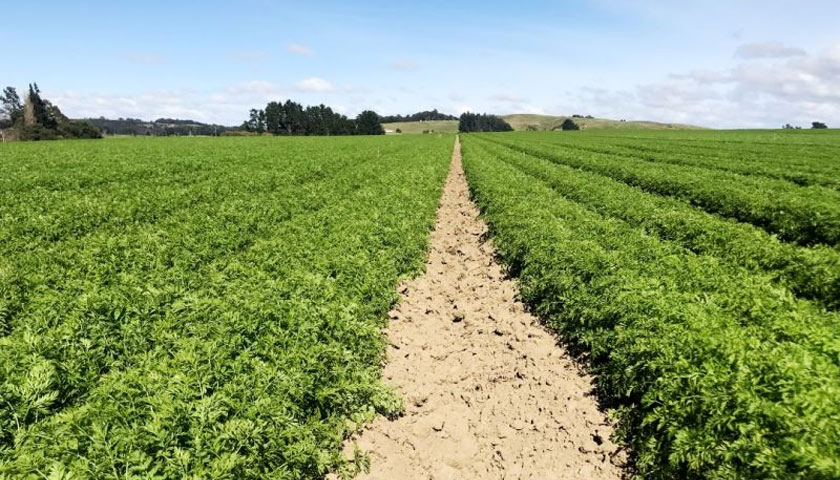
Tri-Form 60 Leading to Robust Carrot Growth
Trical New Zealand has successfully fumigated this block with Tri-Form 60, resulting in robust carrot growth and optimal soil conditions. Tri-Form 60 effectively targets soilborne pests and diseases, fostering an ideal environment for crops to flourish from the outset.
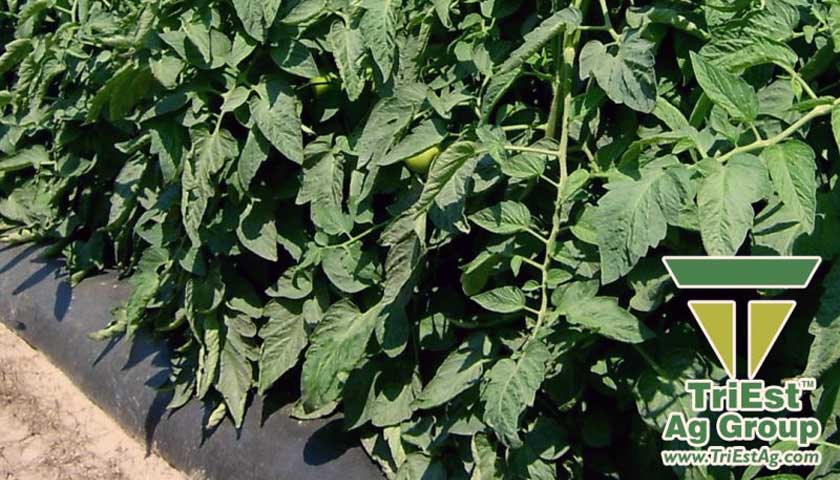
TriEst Soil Treatments Contribute to Soil Health.
Give your plants their best start with increased soil health. TriEst Ag Group's soil treatments contribute to soil health by both suppressing soil borne diseases and supporting the growth of native organisms that are beneficial to soil and plant growth.
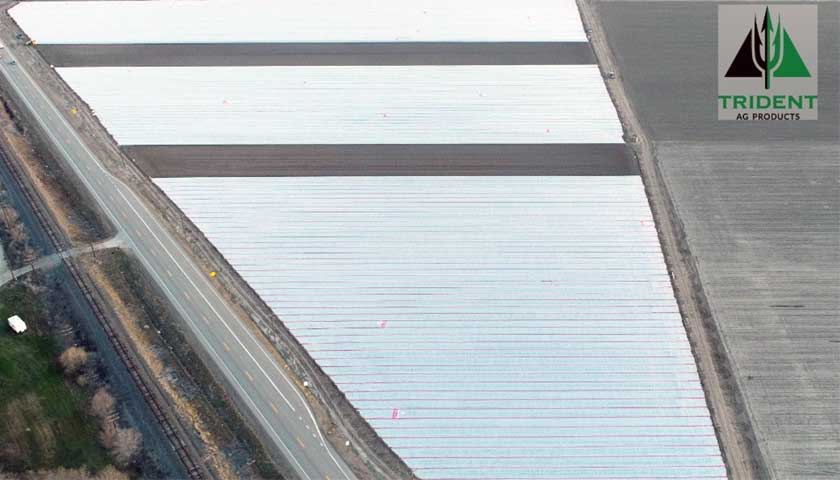
A Fresh Look from Above: Laying the Groundwork for Success
Another incredible aerial view from a strawberry nursery fields projects, where soil fumigation is currently underway. This process is a key part of preparing the field—helping to create clean, healthy soil conditions before planting begins.
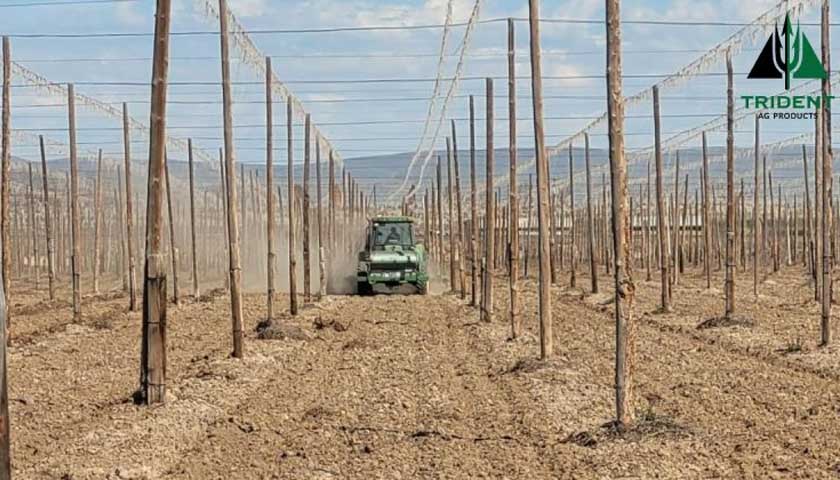
Healthy Soil is Essential for a Productive Hop Yard
At Trident Ag, we recognize that healthy soil is essential for a productive hop yard. Soil-borne pests and diseases can compromise plant vigor, ultimately diminishing yield and quality. Our targeted soil fumigation services are designed for optimal growing conditions for your hops.
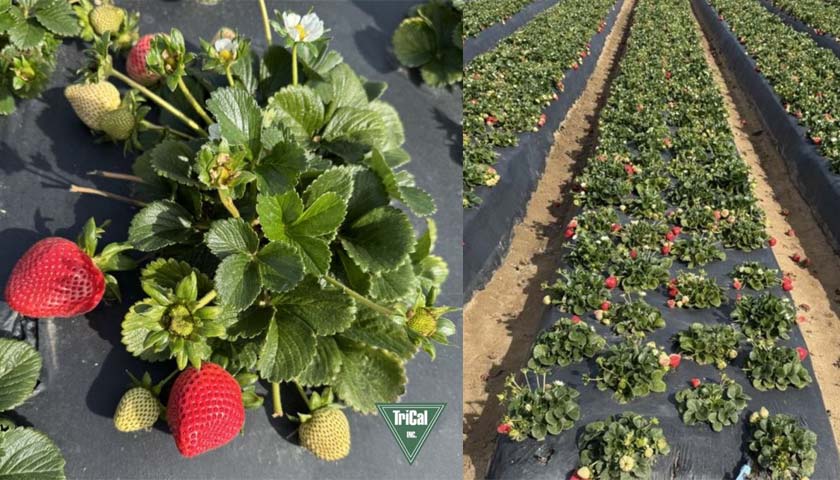
Innovative Strawberry Solutions in California
TriCal Inc. has been committed to enhancing soil health through specialized fumigation of this strawberry field in California. Innovative solutions effectively manage soilborne pests and diseases while enhancing soil quality and improving growing conditions for robust, productive crops.
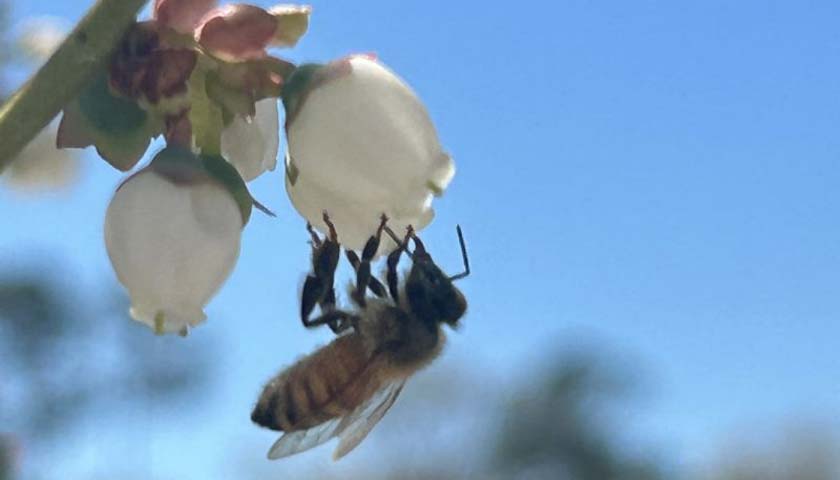
Honeybees enjoying Georgia Blueberry Blooms
Spring is here. It won't be long before there are some sweet Georgia Blueberries ready for picking. This honeybees is still busy enjoying these white blooms before they develop into healthy and delicious berries, ready for your table.
Can a soil fumigant be used as a biostimulant in agriculture?
Can a soil fumigant be used as a biostimulant in agriculture? At TriEst Ag Group we're trying to find those answers. Josh Mays, our agronomist, and Josh Freeman, our Regional Sales Manager, go into further depth on this topic and our findings.
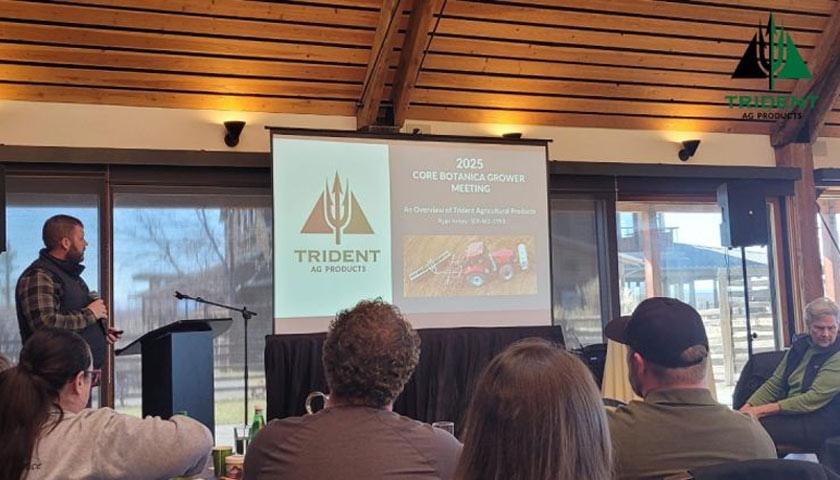
CoreBotanica Annual Grower Meeting
Last week, Ryan Kelsey had the privilege of representing Trident Ag at the CoreBotanica Annual Grower Meeting, offering valuable insights on soil health and sustainable farming practices with growers to contribute to the ongoing success of our agricultural community.
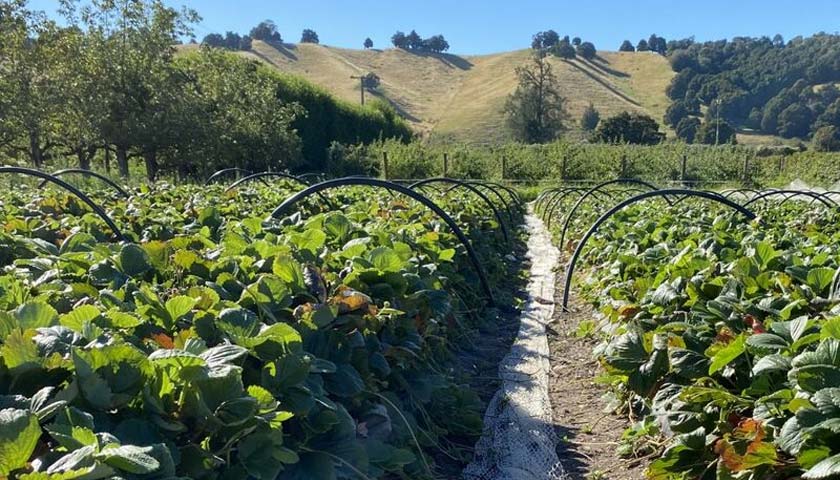
Stronger Soil, Thriving Strawberries
A year ago, this strawberry field underwent soil fumigation with TriCal NZ. The results speak for themselves. Healthy, vigorous plants and strong yields show the long-term benefits of creating a clean growing environment. Fumigation sets up crops for success season after season.
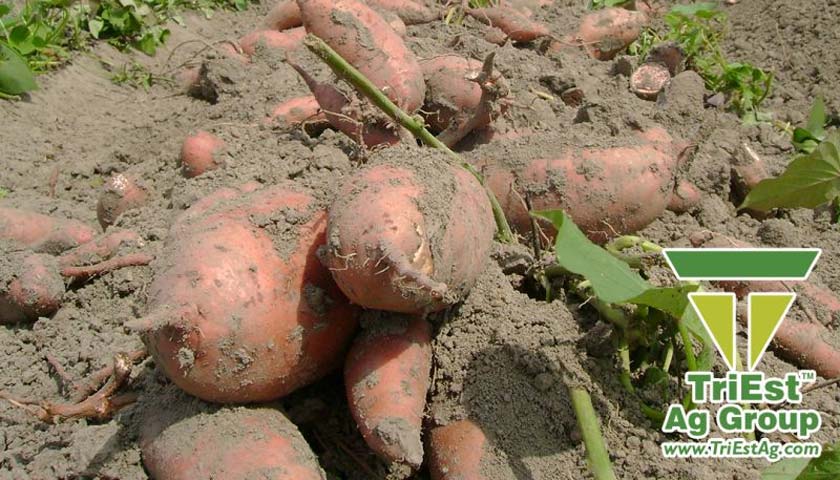
Sweetpotato Soil Fumigation is the Right Plan
Triest Ag Group is spreading the word about implementing Chloropicrin into your sweetpotato soil fumigation plan you can maximize your tuber set and quality by reducing soil borne pathogens to create space for beneficial microbes to thrive for better soil health.
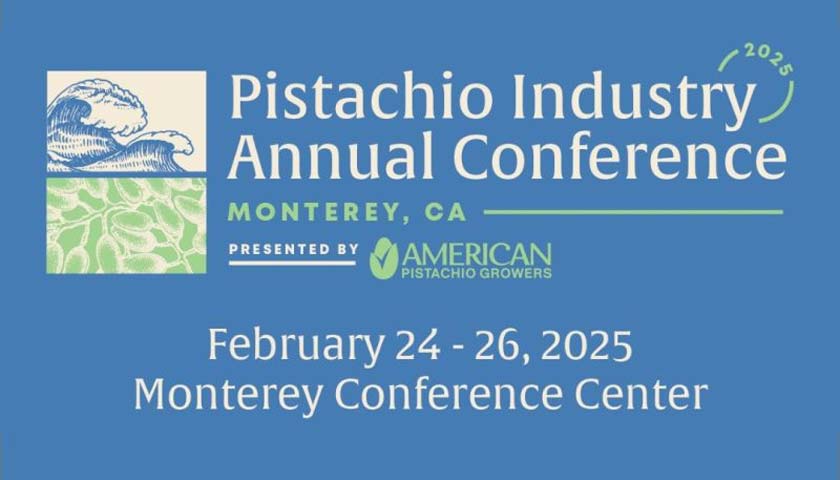
Trical attends Pistachio Conference in Monterey, CA
TriCal Group’s affiliated companies are attending the Pistachio Industry Annual Conference in the Monterey Conference Center. Trical would enjoy connecting with you to discuss your soil's health and optimize your irrigation systems to help your pistachio crops thrive.

Raspberry Soil Fumigation Project in Santa Maria
TriCal Inc. recently completed a soil fumigation project for a raspberry crop in the Santa Maria area. Trical Inc. help growers create a healthy root system, control disease, and improved crop yields. Soil fumigation solutions can maximize your yield and protect your soil health.
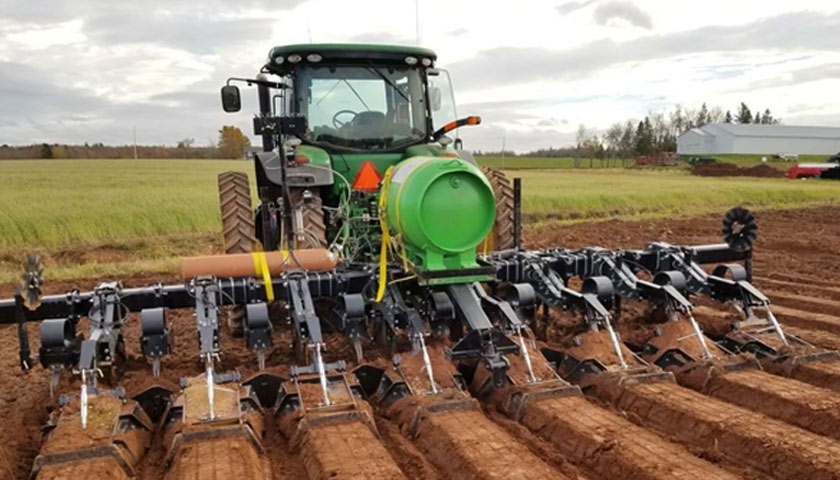
Preparing For Spring Telone™ Applications
As spring approaches, it’s essential to prepare fields for planting by effectively managing soil-borne pests, particularly nematodes. This blog post outlines steps to ensure successful fumigation, including soil sampling, using pre-application checklists, and monitoring soil moisture levels.
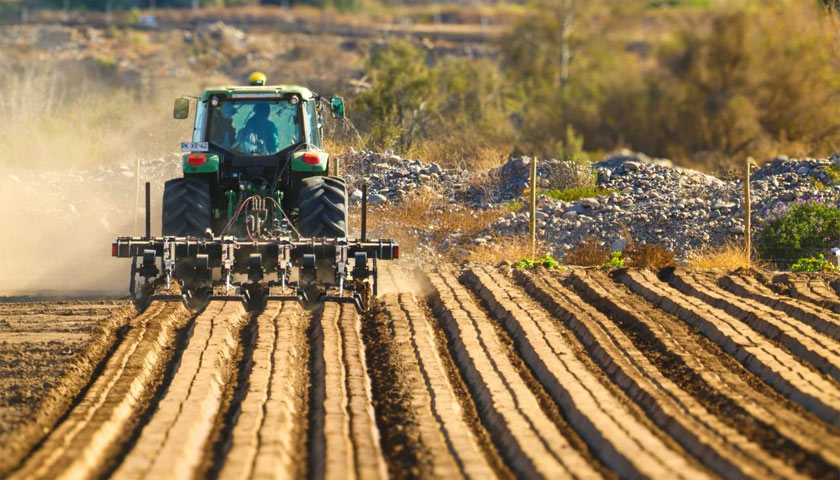
Technology and Innovation Saving South American Soils
Trical South America is spreading the news that the key to the success of any crop begins in the soil and its roots. Trical South America specializes in soil treatments to control nematodes, fungi, bacteria, insects, ensuring healthier and more productive crops.
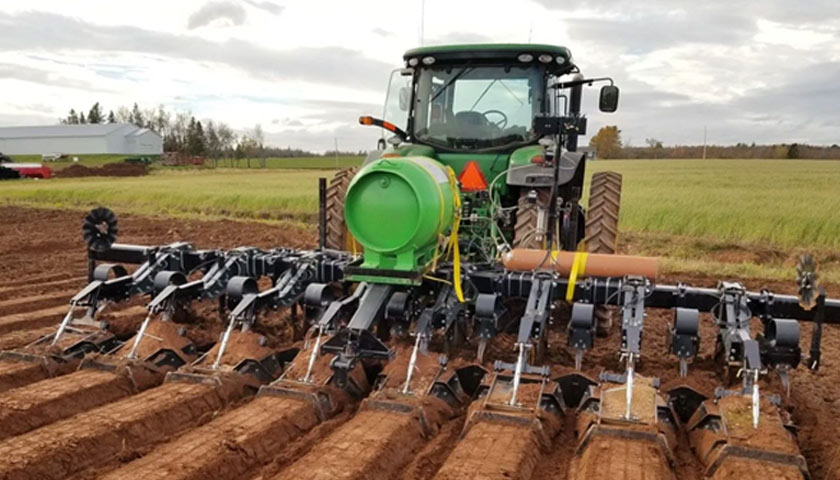
The Role of Soil Fumigation in Boosting Crop Growth
Soil fumigation is a pre-planting practice that involves injecting fumigants into the soil to target harmful soil-borne pests and pathogens. This process works by penetrating throughout the soil to target nematodes, fungi, bacteria, and insects, which can hinder plant development.

"California Grown" Strawberries Heading to Market
Keep an eye out for "California Grown" strawberries on your next shopping trip your grocery store. Trical believes great strawberries begin with healthy soil with soil fumigation solutions designed to support vigorous plant growth and produce berries with exceptional size and quality.

Potato Trial in Oregon focused on Tackling Pathogens
Trident Ag Products and Dr. Maxwell Handiseni are conducting a potato trial in Boardman, Oregon, focused on tackling pathogens like verticillium wilt and black dot in potatoes using chloropicrin, the active ingredient in Strike™ Soil Fumigant.

Agronomy Q&A: The Role of Soil Fumigation In Boosting Crop Growth
Soil fumigation is a pre-planting practice that works by penetrating throughout the soil profile to address threats like nematodes, fungi, bacteria, and insects, creating a pathogen-free root zone, soil fumigation lays the foundation for a healthier growing environment.
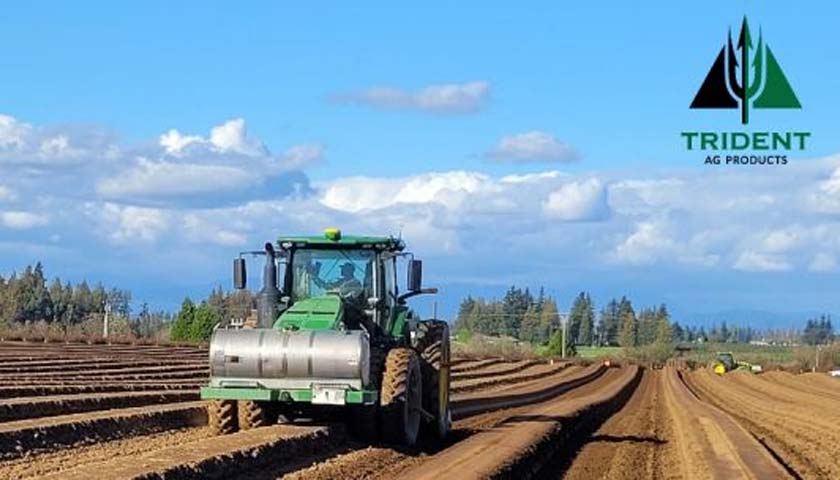
Soil treatment and Set the Foundation for a New Year
The start of a new year is the ideal time to plan soil treatment and set the foundation for a successful growing season. Healthy soil is essential for producing high-quality crops, especially when managing the demands of a long growing cycle. Proper soil preparation before planting not only promotes resilient crop growth but also supports consistent yield success.
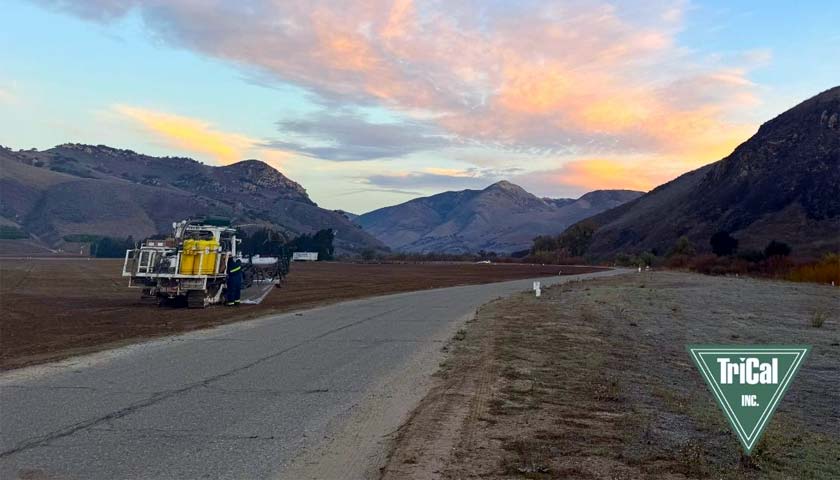
Raspberry Soil Fumigation on the Coastal California
Trical Inc. just completed a raspberry soil fumigation project along Coastal California, helping a local farmer ensure a thriving harvest season. Booking a consultation with a Trical Inc PCA can help farmers learn how to support the success of a farmer's planting season.
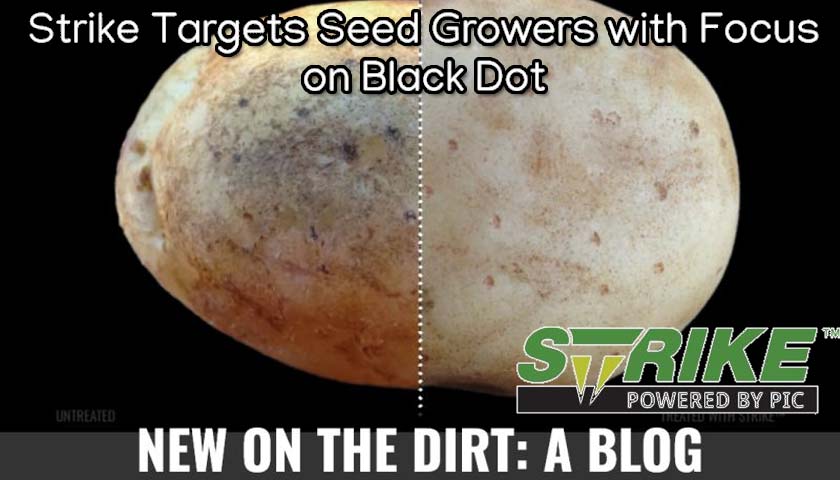
Strike Targets Seed Growers with Focus on Black Dot
Black dot has historically been overlooked in potato seed production. Recent research shows that black dot, caused by the fungus Colletotrichum coccodes, working synergistically with Verticillium dahliae and root-lesion nematodes to weaken plants and reduce yields.
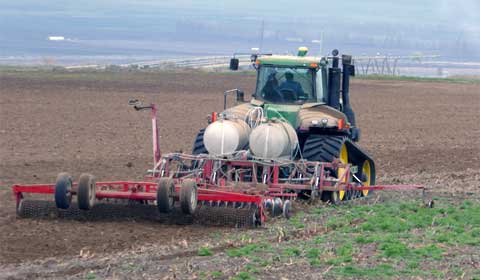
Trident fights Common Scab, Verticillium Wilt & Black Dot
Trident Ag. recently completed Strike™ fumigations in potato fields in Washington State to help control soil-borne diseases like Common Scab, Verticillium wilt, and Black Dot, ensuring healthier soil and better crop yields.
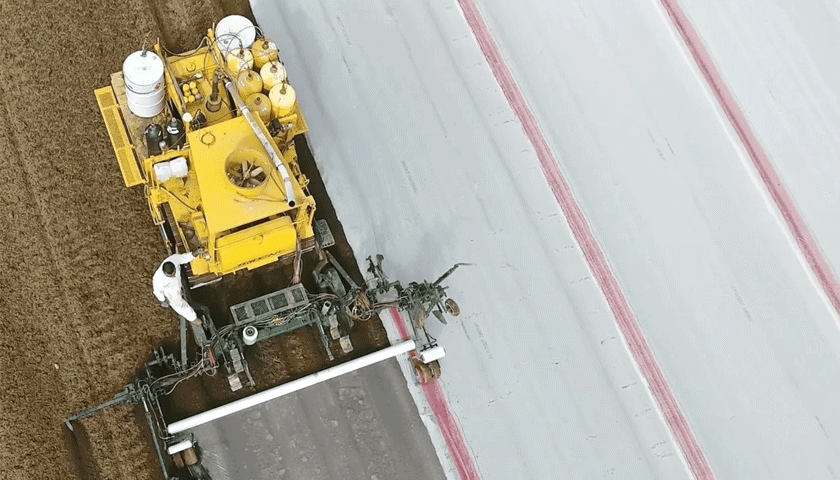
Soil Fumigant: Application Flexibility Puts You In Control
For growers, managing soil pests like nematodes, fungi, and organisms can mean the difference between a robust harvest and significant losses. TELONE™ soil fumigant comes into play, offering a solution for controlling a broad spectrum of nematodes and soil-borne pests..
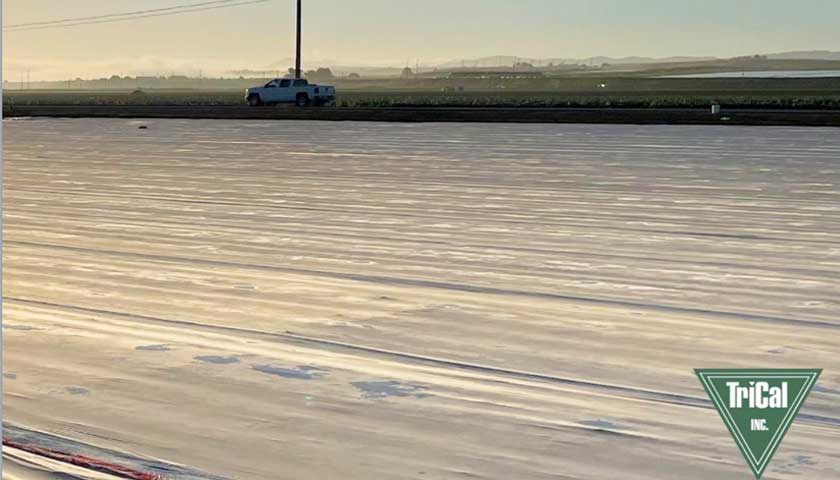
TriCal Inc. covers in California in Plastic
At TriCal Inc. prioritizes safety, and stewardship to ensure that we can continue growing healthy fruits and vegetables while safeguarding our communities and the environment. It keeps soil treatments contained, ensuring they stay in place and don't spread beyond the field.
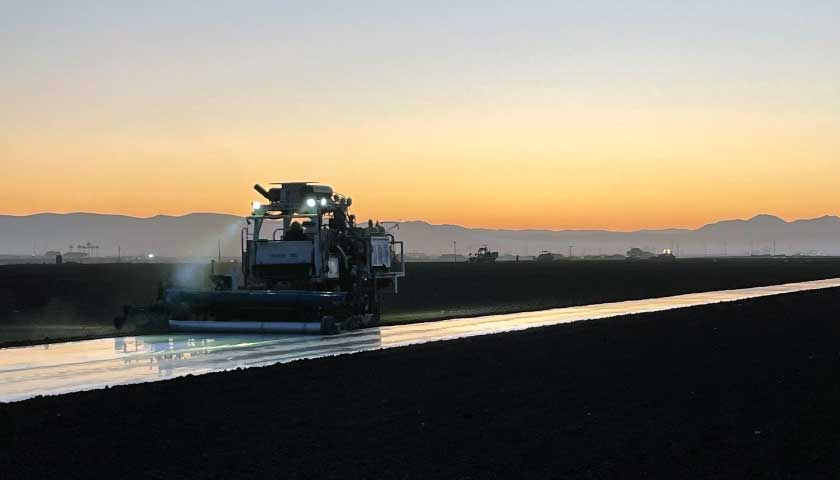
Strawberry Fall Fumigation Underway
This grower in Santa Maria, California is prepping their soil now to ensure a bountiful strawberry harvest. TriCal’s qualified Pest Control Advisors (PCAs) offer valuable guidance to strawberry growers, helping them maintain a healthy soil biome while prioritizing environmental stewardship.

Trical visits with California Legislators Advocating for Soil Fumigation
Colleagues Courtney Ross-Tait and Kara KeziosKara Kezios were in sunny Sacramento educating legislators and advocating for the benefits of soil fumigation. Soil fumigation leads to soil health by creating healthy root systems. TriCal, Inc. has been in business for over 60 years improving crop yield and quality for farmers and growers in California and all over the world.

It’s ‘Harvest Earned, Not Harvest Given’
Our goal is to help you reach your growing potential. This is your livelihood, and you put in a lot of work. We see our role as being partners in farmers’ efforts. We can’t put in the hours in the tractor, but we can support soil health and effectively suppressing soil-borne pathogens.
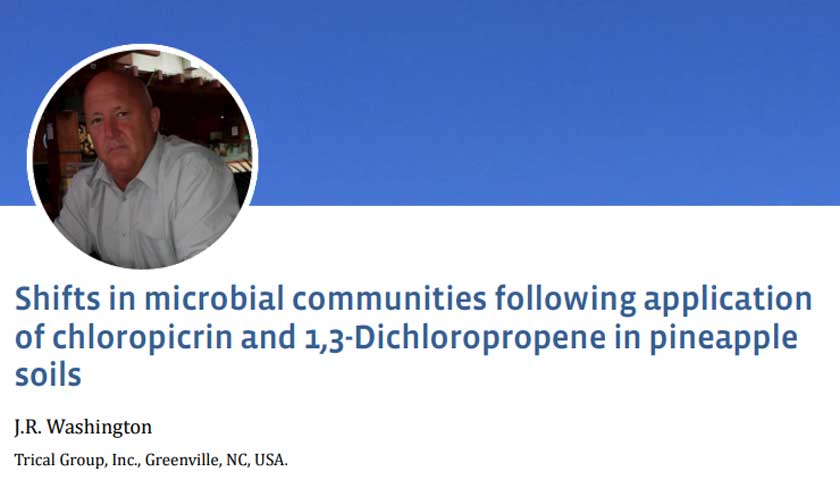
Shifts in Microbial Communities following application of Chloropicrin and 1,3-Dichloropropene in Pineapple
Trical Group's John Washington released a paper on fumigation using Chloropicrin and 1,3-dichloropropene (1,3-D) and its impact on microbiological communities and soil health.
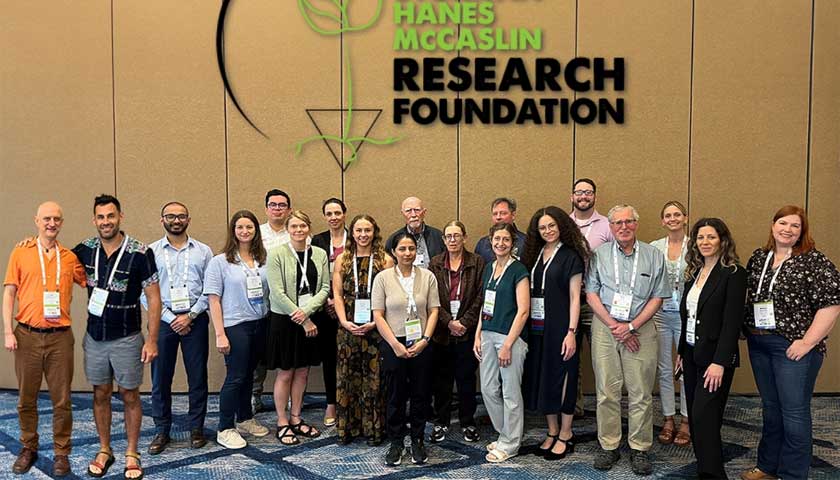
2024 Storkan-Hanes-McCaslin Research Foundation Award
TriCal Inc. is excited to announce the winners of the 2024 Storkan-Hanes-McCaslin Research Foundation Award! Join us in congratulating Sudha Upadhaya from Washington State University, Ram Neupane from Penn State University, and Corrie Vincent from Memorial University of Newfoundland.
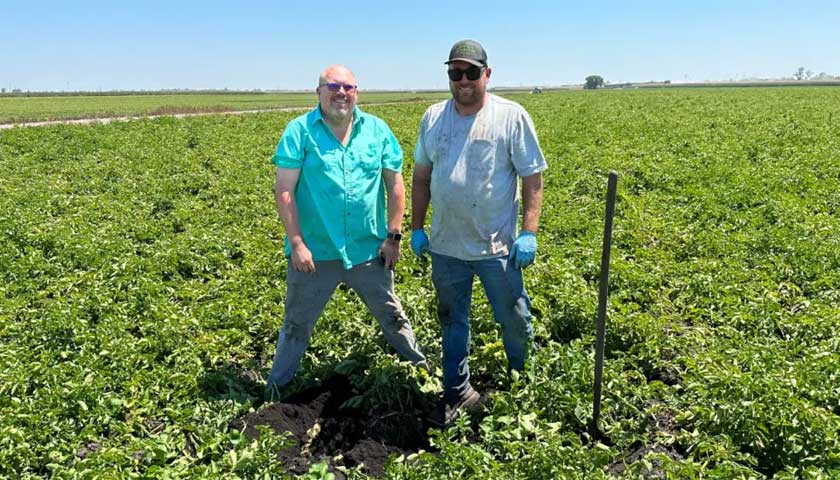
Agricultural Science Done Right Resolves Social Science Intentions
Farmers are hungry for tangible ways to increase their sustainable efforts while maintaining economically viable yields. A lot of voices are calling for farming reform. However, feel good soundbites don’t feed the world. Potato producers are keen for real solutions.
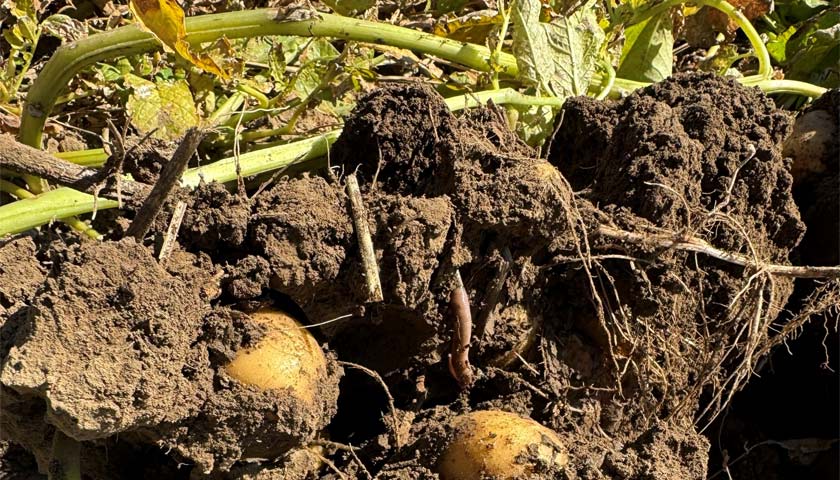
Meister Media Worldwide's Annual Soil Health Report.
Meister Media Worldwide's Annual Soil Health Report is now available! Our very own Dr. Randy (RM) Huckaba was interviewed for the piece, sharing thoughts on how soil fumigation with TELONE™ can be a vital part of a sustainable pest management plan.
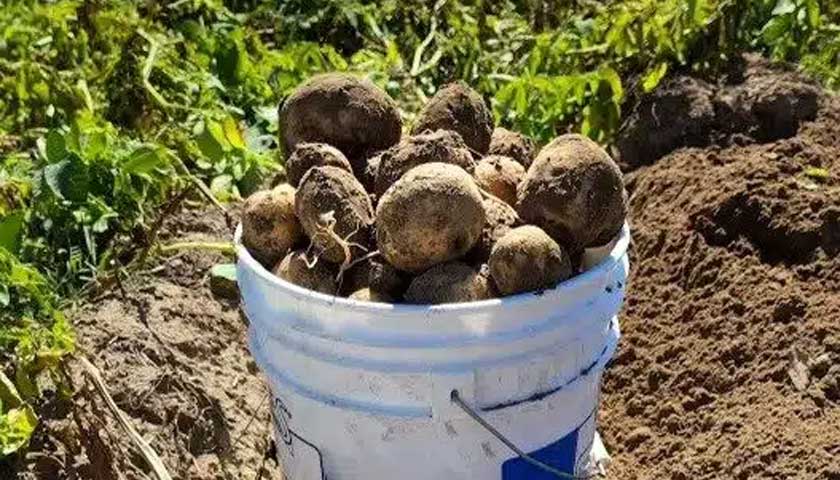
Do You Know (And Appreciate) the Hidden Heroes Beneath Our Feet?
One gram of soil can hold more than 50,000 species of microbes, all living, breathing, interacting and impacting our soil, land, and air. Swiss researcher Mark Anthony recently calculated that soil is home to 59% of Earth’s total life, the most biodiverse habitat on Earth!
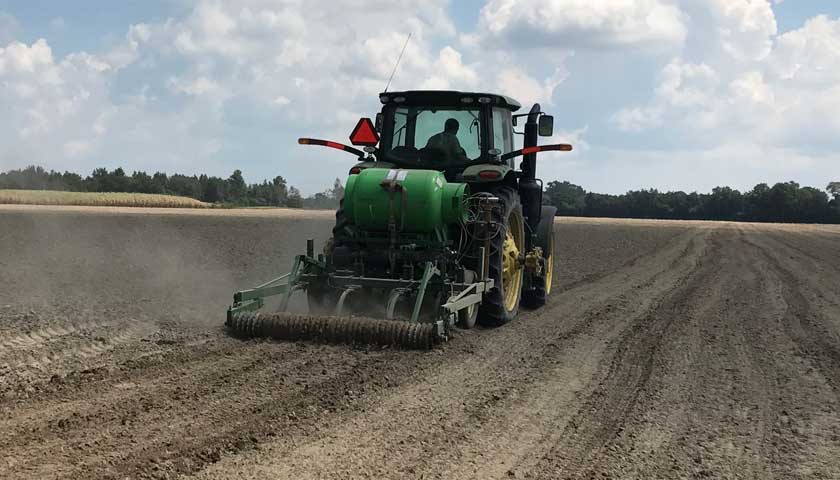
Breaking Down the Details on Chloropicrin
Chloropicrin has been used as an agricultural product for soil-borne pest suppression in specialty crops throughout the world for over 60 years. It is a bio-nutritional soil fumigant that breaks down into elements that are naturally utilized by plants: carbon, chlorine, nitrogen, and oxygen.
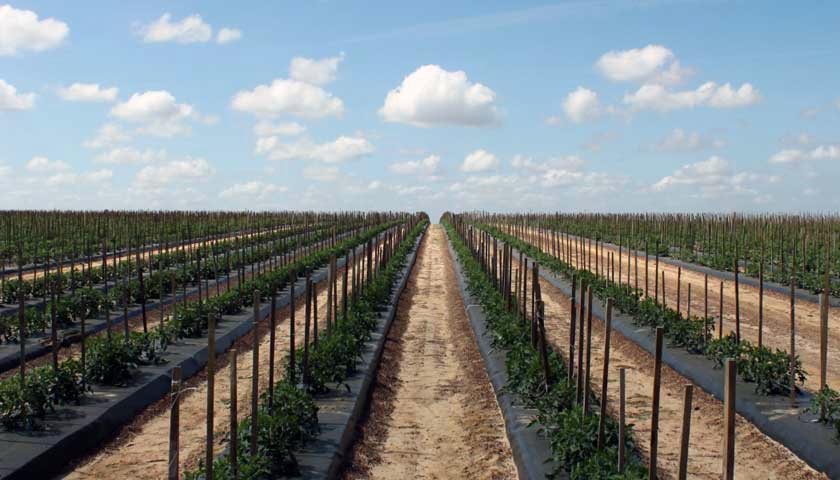
Could A Soil Fumigant Be Used as a Bio-Stimulant?
A group of scientists at the University of Florida have been investigating the impact of soil fumigation on microbial communities and recently published some of their findings. They found that fumigant treatments with greater than 60% chloropicrin consistently increased tomato yield

A High-tech Look Inside Soil’s Microbiome
Chad Hutchinson is pleased to discuss soil microbes and sustainability with Joy Youwakim, an agroecology scientist at Biome Makers, an independent, third-party genomics company that specializes in DNA sequencing of agricultural soil samples.
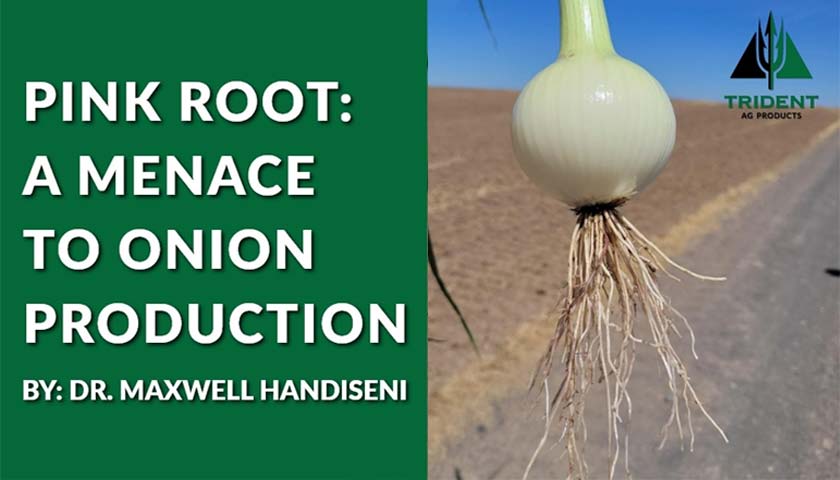
Pink Root: A Menace to Onion Production
Pink root of onion caused by Phoma (Pyrenochaeta) terrestris is a devastating soilborne pathogen of onion worldwide. Infected roots are noticeable by a pink to red color at early stages of the disease and eventually dark in color and death of the plant. The pathogen has a wide host range.
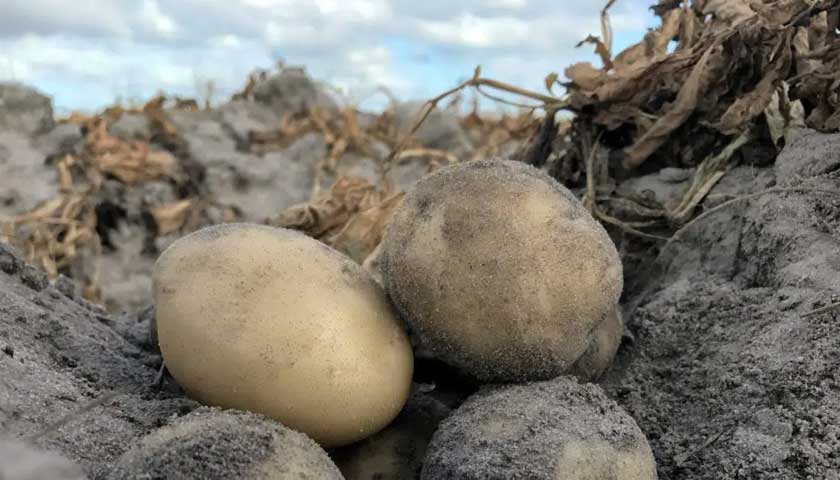
Managing the Good and the Bad of Soil Microorganisms
If you’ve farmed for several decades, you’ve seen firsthand the shift from broad spectrum to targeted pest management. Partially, the change has occurred because today’s available technologies are so vastly more precise than what our parents and grandparents used.

Soil Health: An Overview For Growers
Healthy soil is the foundation for successful agricultural production. One factor that can inhibit soil health is plant parasitic nematodes. Ee will discuss the importance of soil health, how nutrient cycling affects soil health, and the importance of soil fumigation in controlling nematodes.
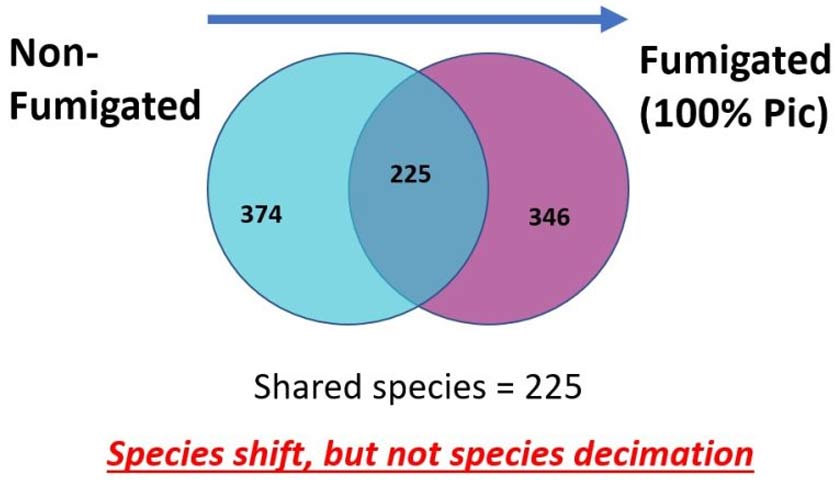
Chloropicrin Shifts Soil Biology in Powerful Ways across Diverse Regions, Crops, and Soil Types
What the studies conclusively show is that in the weeks and months following soil fumigation with chloropicrin, soil microbial communities (bacteria and fungi) shifted in remarkable and quantifiable ways.
